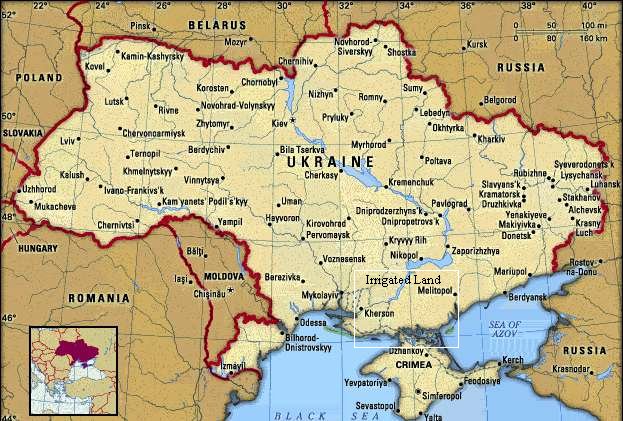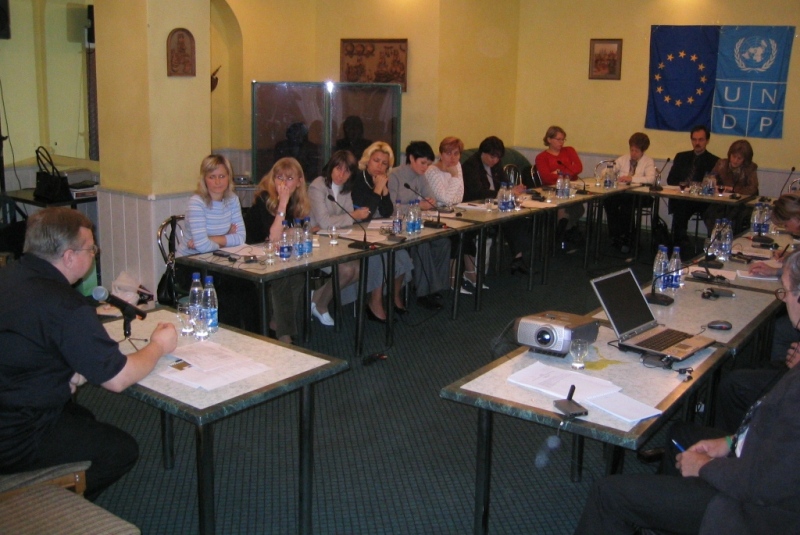Ukraine was one of only two countries worldwide to be downgraded to Partly Free for developments in 2010, according to Freedomhouse rankings.
With a population of 46 million and shared borders with the European Union (EU) and NATO member states, as well as with Russia, Ukraine is a country of vast importance.
If it becomes a more established, democratic, market-oriented member of the Euro-Atlantic community, it will have a positive effect on the wider region and become a success story for its neighbors, including Belarus, Moldova and Russia, to em ulate.
ulate.
In Freedomhouse’s opinion, if it moves in a more authoritarian direction, Ukraine will not only set back its own future, but also damage hope for reform in Eurasia as a whole.
New president – hope or threat?
Yanukovych’s government is a welcome change to some, however it has also revealed authoritarian tendencies.
The negative effects have included a more restrictive environment for the media, selective prosecution of opposition figures, worrisome instances of intrusiveness by the Security Service of Ukraine (SBU), widely criticized local elections in October 2010, a pliant parliament (Verkhovna Rada), and an erosion of basic freedoms of assembly and speech.
The Western conspiracy
Taras Kuzio, a well known academic and expert in Ukrainian political and economic affairs, says in his article that Ukraine turns currently a wrong direction.
He states that the Soviet Union used to propagate the notion that dissidents were funded by Western intelligence agencies.
“Today, those same (now, post-Soviet) elites, push an updated version of this notion, by arguing that their opponents work with Western foundations and NGOs to foment democratic “revolutions.”
Immediately after Yanukovych’s election, Western foundations came under Security Service (SBU) and Party of Regions scrutiny.
In June of last year, the Ministry of Foreign Affairs called in diplomats from the US, German and Polish E mbassies to warn them that their NGOs should abide by Ukrainian legislation.
mbassies to warn them that their NGOs should abide by Ukrainian legislation.
In October, the SBU admitted it was investigating foreign funding for NGOs because of suspicion that “this money will be used for political activity in Ukraine.”
In August 2010, Nico Lange (left), director of the Konrad Adenauer Stiftung (a German think tank promoting democracy in developing countries around the world) was detained at Kyiv Airport and only permitted to enter Ukraine following intervention from Chancellor Angela Merkel.”
According to him, the return to conspiracy theories draws on the Soviet pathology of paranoia, the fear of encirclement by “enemies,” hostility to Ukrainian nationalism and old-fashioned anti-Americanism, Kuzio remarks.
Shadow of corruption and consolidation of power
Corruption remains also a huge challenge to the country, and there is significant room for the situation to get even worse.
Indeed, if left unchecked, the trends set by Ukraine’s current leadership will move the country toward greater centralization and consolidation of power – that is, toward authoritarianism, says Freedomhouse.
While civil society remains rather vibrant, it is also dispirited, depressed after the letdown by the Orange Revolution’s leaders, and despondent over the current government’s direction. The formal opposition offers little hope, as longtime political figures fail to inspire much public confidence.
letdown by the Orange Revolution’s leaders, and despondent over the current government’s direction. The formal opposition offers little hope, as longtime political figures fail to inspire much public confidence.
This dynamic places even more pressure and responsibility on the West to deepen its engagement, both with the Yanukovych government and with Ukrainian society, by encouraging and rewarding good performance and pushing against backsliding on democracy.
And yet both the EU and the United States seem to have disengaged from Ukraine or narrowed the bilateral agenda to a few issues of strategic importance, such as nonproliferation. This is the wrong approach, evaluates Freedomhouse.
Related articles:
ARTICLE 19 and IMS call on new President of Ukraine to stand for freedom of expression
Ukraine: Access to information law adopted
Ukrainian Parliament urged to adopt law on access to public information
Article 19 welcomes resolution on Ukraine’s democratic development
Attacks on journalists in Belarus, Ukraine and Russia – attacks on freedom of expression?





